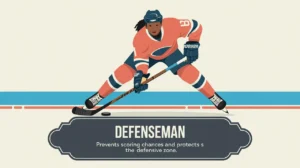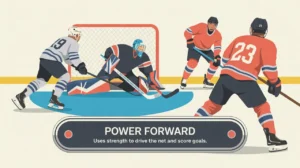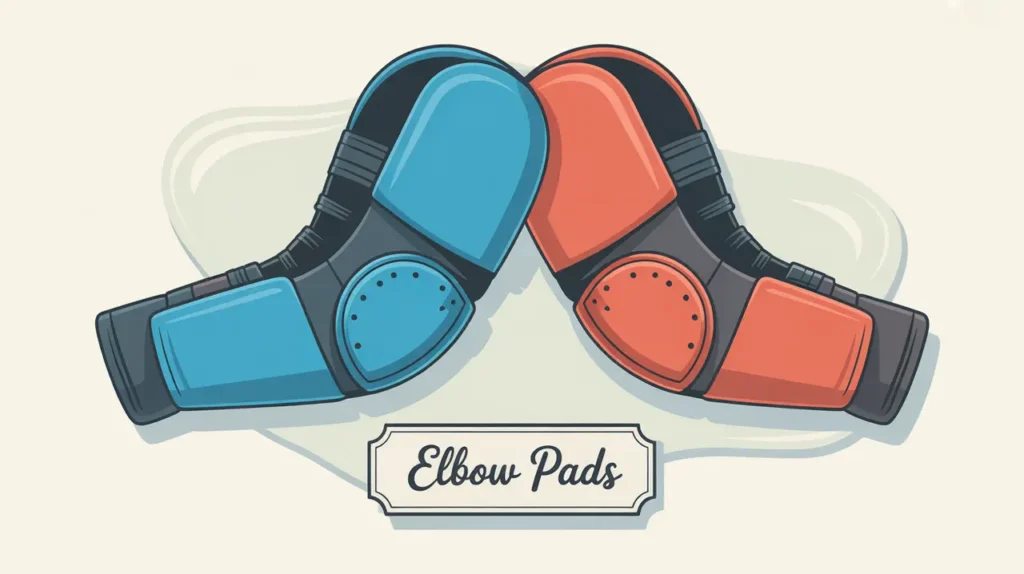Jim’s Intro to the Goalie Chest Protector
Hi folks, Jim here, the only commentator who was invited to replace the goalie in a recreational league, but forgot his chest protector and had to strap on a pillow for protection. Those flying pucks still hurt, a lot.
What is the goalie chest protector?
The chest protector is a goalie’s upper-body armor. It covers the chest, ribs, shoulders, and arms with layered padding designed to absorb and deflect the force of blistering shots. Unlike player shoulder pads, which balance mobility and light protection, goalie chest protectors are built to handle pucks flying in at high speeds from every angle. A properly fitted unit gives the goalie full coverage without restricting movement, allowing them to play aggressively and confidently in the crease.
How does it work?
The chest protector combines dense foams, plastic inserts, and articulated panels to shield the upper body while allowing flexible movement.
- Chest and Rib Panels: Thick padding absorbs and spreads out impact across the torso.
- Shoulder Floaters: Large, flat panels that increase coverage while protecting the shoulder joints.
- Arm and Elbow Protection: Built-in guards shield the forearms and elbows without limiting mobility.
- Back Harness and Straps: Keep the unit snug and centered on the body.
- Articulated Design: Segmented panels allow the goalie to bend, reach, and rotate freely.
When adjusted properly, the chest protector sits firmly in place and moves as the goalie moves, keeping coverage consistent through every save attempt.
How do you make good decisions with it?
Choosing the right chest protector is about fit, protection level, and mobility.
- Fit: Should cover the entire upper body without riding up into the mask or exposing gaps at the waist.
- Size: The right size will avoid awkward shifts and ensure that key body areas are not left exposed.
- Protection Level: Elite models use higher-density foams and reinforced plastics for pro-level impacts.
- Mobility: Arm movement should be unrestricted for reaching, glove saves, and stickhandling.
- Condition: Check for packed-out foam, loose stitching, or broken straps, all of which affect protection and comfort.
How do you master it?
Goalies master their chest protectors by breaking them in and fine-tuning strap adjustments. Over time, the unit molds slightly to their body and movement style. They learn how it behaves in different save positions, ensuring it stays in place during quick transitions. Once dialed in, it feels like a natural shield rather than bulky padding.
What does it look like when done right?
A well-fitted chest protector sits still under pressure. Goalies drop, slide, and reach without shifting the unit. Shots hit with a solid thud and rebound predictably. There’s no exposed midsection, no riding up into the mask, and no hesitation to get in front of the puck.
Commentator’s Corner
Jim’s Take
I’ve seen goalies wear chest protectors so loose they spin like a life jacket in a wave pool. One good slapshot to the ribs usually fixes that lesson fast.
Parent Tip
Prioritize fit and protection over price or bulk. Make sure the protector doesn’t ride up when the goalie raises their arms, and check for adequate rib coverage.
Player Tip
Take time to adjust and break in the unit. A snug, well-set protector lets you focus on tracking the puck, not tugging at your gear.
A Final Thought
The chest protector is the goalie’s shield, plain and simple. When it fits right and stays put, it gives goalies the freedom to face any shot with total bravado.









